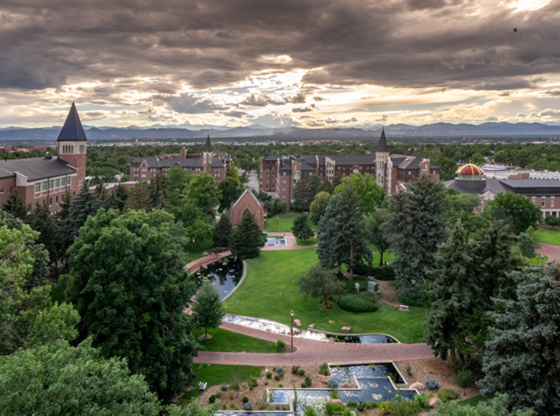“Inclusive Excellence” is a term thrown around a lot at DU. In everything we do from first-year orientation to Greek parties, we’re reminded to be “inclusively excellent.”
DU’s definition of inclusive excellence is exhaustive, but it can be summarized up as “the intentional recognition of everyone’s various identities, and the celebration of the differences that make our community unique.”
But even though this concept is written directly into the University’s proclaimed values, nobody seems to know what it means. In fact, it’s often made fun of by students who don’t know what they’re talking about, or don’t care.
“Psh, this university isn’t inclusive,” they say. “What a joke.”
But, they’re wrong.
We all know that DU is not a very racially diverse campus.
According to Collegeprowler.com, DU has only 3 percent African-American Students, 4 percent Asian-American, 6 percent Hispanic and 1 percent Native-American.
We’re stereotyped as being a group of privileged rich white kids. In my experience here, I have seen some people that do fit that stereotype, but I have also seen so much more than that.
I’ve met people from Europe and Africa, homosexuals and transgenders, students from a variety of different socio-economic statuses and people with passions across the board.
How can we say that we’re not a diverse group of people with so many different groups represented?
We have to see beyond the numbers and consider peoples’ background and personal histories.
But inclusive excellence doesn’t just mean that we allow all different types of students on our campus.
It means that we recognize that we are all part of the same group of students, that we make an effort to integrate ourselves with those who are different and it means that we actually care about getting to know each other – shocking, I know.
During the civil rights movement, many would have said that they were being “inclusive” by allowing African-Americans to eat in their restaurant or ride in the same section of the bus.
But if you’re ignoring someone who’s different from you or treating them differently in any way from others (even if you do let them sit next to you), then you don’t really deserve a pat on the back for being inclusive.
Just because you’re not being exclusive, doesn’t mean you’re being inclusive.
I’m proud to say that I believe DU is for the most part, following up on its claim to be inclusively excellent.
The more students feel welcome in the DU community, the more we can learn from each other and discover new perspectives.
I have seen so many of these students who make fun of inclusive excellence actively participating in it themselves.
We have student organizations designed to bridge the gap between international and domestic students, Queer-Straight Alliance, and several multi-cultural organizations. On top of that I’ve noticed students seem to genuinely care about each other no matter how different we may be. It seems like being inclusive is an inherent part of DU culture, though most of us are unaware of it.
At the same time, there are many ways we, as a student body can improve.
If most of us laugh at the term or don’t know what inclusive excellence means, then we aren’t exactly taking it to heart.
We should constantly have it in the back of our heads, speak in a way that includes everyone, make an effort to get to know new people, and share what is different about ourselves. We shouldn’t laugh at the idea.
Yes, it does sound super nerdy to proclaim your passion for inclusive excellence, but the term wasn’t ingrained into the university’s values just as a marketing scheme.
DU students really should strive to be as good as we possibly can be, and that starts with caring about those who are different.
I’m not embarrassed to say that I care.











